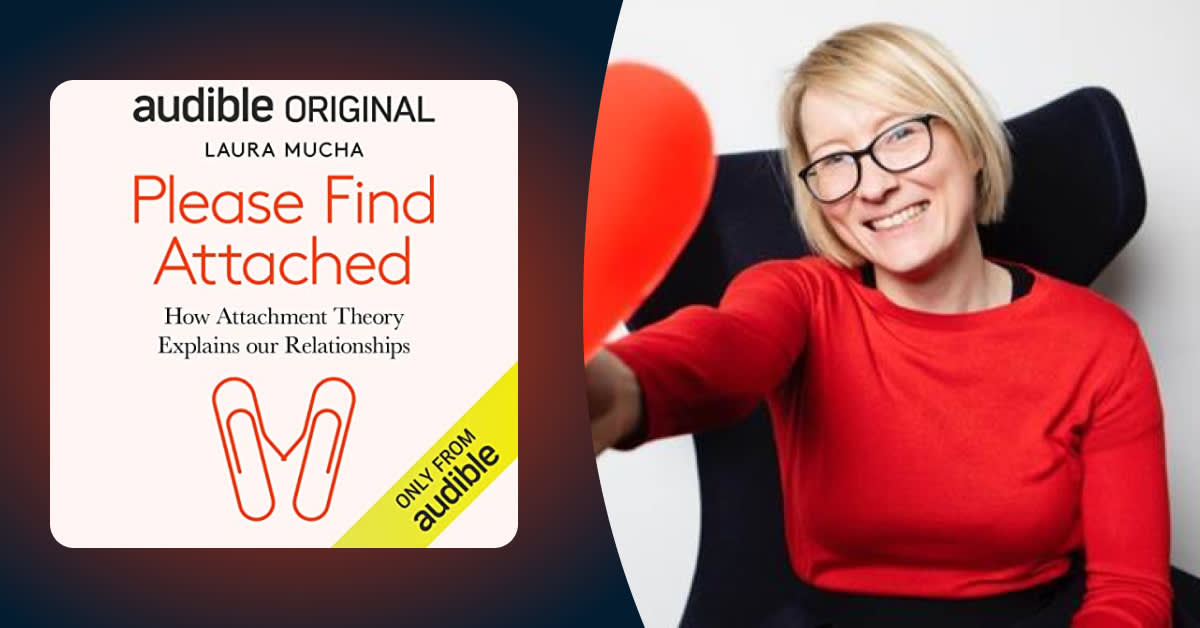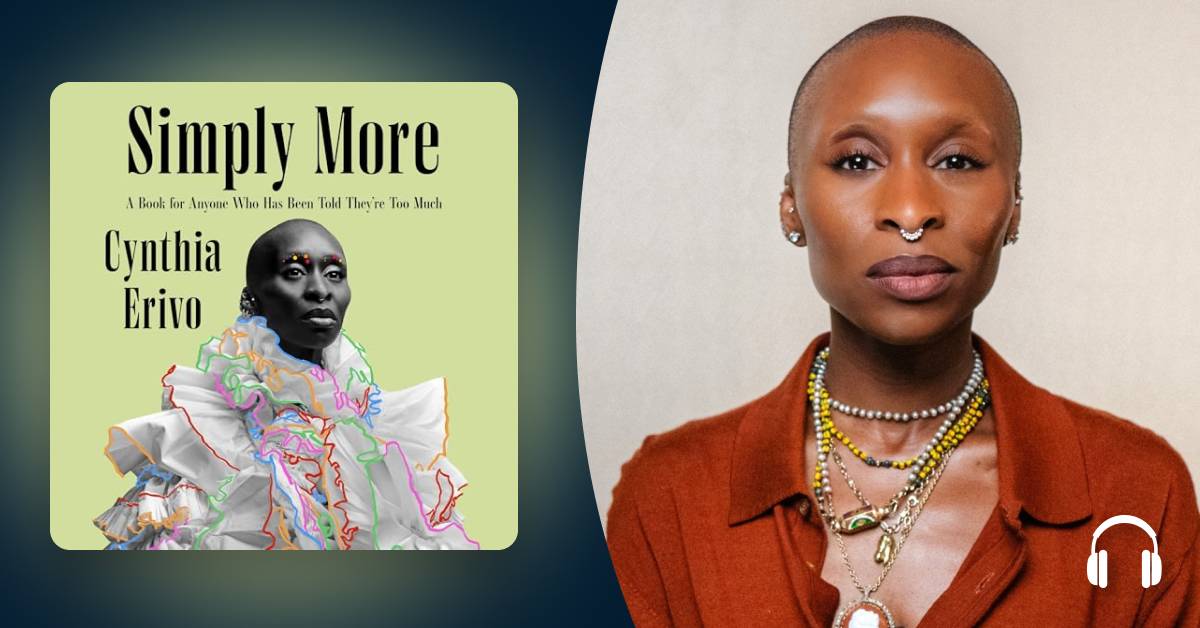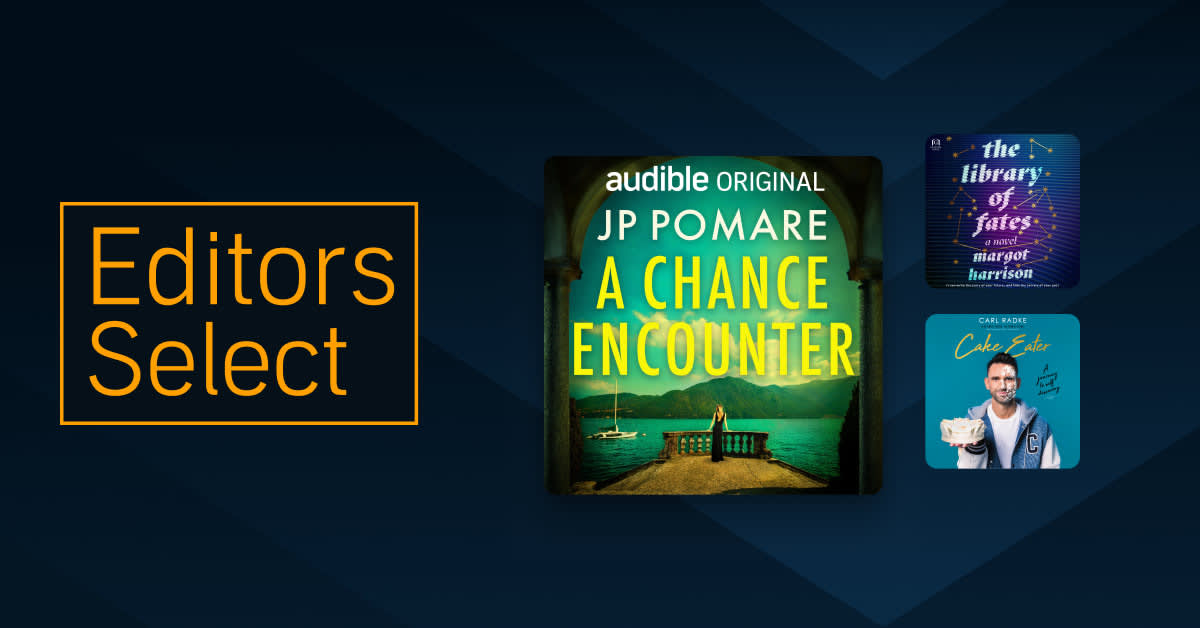Laura Mucha is Author-in-Residence in the Department of Public Health & Primary Care, University of Cambridge. She writes for children and adults, and her work for adults includes We Need to Talk About Love / Love Understood, and her new Audible Original, Please Find Attached.
Your first book We Need to Talk About Love / Love Understood, is the result of ten years of interviewing strangers to share their thoughts on love. How did it begin?
I was raised by my mum and grandparents until my grandfather (who I called Dad) died when I was 11. My mum and grandma were amazing, but without having a romantic relationship to observe, growing up, I didn’t really understand them.
So I approached 3-400 strangers across every continent and asked them to tell me everything about their romantic lives. And amazingly, almost all of them did! But I quickly learned their words were only part of the picture. As humans, we often behave in ways we don’t understand, so I turned to the science to unpick that.
Writing and researching that book led me to getting married (to someone I had previous broken up with…). It also led to writing Please Find Attached.
Tell us more about your Audible Original, Please Find Attached.
I quickly realised that attachment theory is a game changer when it comes to understanding relationships, but it’s widely misunderstood by professionals, as well as the public – with disastrous consequences (for example, children being taken away from their families). So I wanted to work with world-leading experts to try to change that.
The audiobook explains the theory, at the same time as applying it to the lives of seven brave and honest people that I assessed and followed for almost five years.
What is attachment theory?
It’s the most significant theory of human relationships in the last century.
One of the most important ideas is that we’re all predisposed to turn to Someone Important when we are hurt, worried, upset or scared. As a child, this might be a relative, teacher or neighbour. As an adult, it might be a family member, romantic partner or best friend.
Ideally, this Important Person would be there for us when we need it. By there for us, I mean available but also willing and able to comfort and protect us. Then, when they’re there for us again and again and again, we start to trust that we have a safe haven. This is called ‘security’.
Once we have that trust, we can use that Important Person as a ‘secure base’. This means that we can venture off into the world to explore and learn, safe in the knowledge that if we need help, we will get it.
But for some children, the experiences they have with their Important People mean they don’t fully trust that they will have a safe haven when they need one. This is called ‘insecurity’. Around half of us are classified as insecure.
Why is it important to understand our own attachment pattern?
It’s helpful to learn about attachment theory and understand why we behave the way we do in relationships (and work on that if we want to).
But when it comes to figuring out our own attachment pattern, it’s very, veryyyyy easy to get it wrong or oversimplify. So I would actually advise against trying to figure it out. Still, if you’re interested…
There are two main formal ways of assessing attachment in adulthood.
One is a short questionnaire that asks you to describe how you operate in romantic relationships. You can find this online pretty easily, it’s called the Experience in Close Relationships – Revised. Catchy.
Another is a seriously intense interview called the Adult Attachment Interview that’s designed to surprise the unconscious. It’s mostly used by attachment academics, although psychotherapists in the US sometimes use it to figure out their clients’ classifications.
Unhelpfully, most people (including the interviewees for Please Find Attached) don’t have the same classification in each of these assessments… So you can be – and people often are – secure in one, insecure in another. This makes talking about attachment theory in adulthood tricky.
It also means it’s very easy to see yourself (and others) through a lens that may not be helpful or correct.
Can you change your attachment pattern?
The attachment patterns we develop in childhood can last for a long time.
Imagine you have a parent that gets annoyed if you hurt yourself or get upset. If you avoid asking for their help, you can avoid being told off. And because you haven’t annoyed them, you can stay physically, albeit not emotionally, close to them. And that’s better than nothing.
That might be the best strategy for you as a child, the best you could do to get Someone Important to be there when you were little. But it might create distance in your romantic relationships as you get older. And because it’s a pattern you’ve learned when you were little, you may have no idea that you’re doing it or why.
But attachment patterns aren’t necessarily fixed forever. Our expectations can change if Important People change the way they respond to us, or if a new Important Person emerges and provides a safe haven.
And as adults, we can also consciously choose to change our path – although that change probably won’t be instant.
We might change by seeing a therapist, developing a close relationship with someone who has a secure attachment pattern, or learning about relationships.
Why would people benefit from listening to Please Find Attached?
If you want to understand (and improve) your relationships, I think you need to understand attachment theory.
Unfortunately, a lot of what’s written about it is wrong, so it’s very easy to misunderstand the theory and apply it to your life. And this can be seriously unhelpful.
I wanted to put the nuance back into attachment theory. I also wanted to apply it to the lives of people who have undergone each of the assessments I mentioned above. So you can hear how people with different attachment patterns think, pay attention and speak, whether they’re angry or forgiving when talking about important people, how trauma can spill into what they say, and whether they can back up their idyllic childhood stories or not. You can also see how different important people impact each of them in very different ways – and have the power to completely transform their lives.
Ultimately, I hope listening to Please Find Attached will help listeners reflect on their upbringing and how it impacts them. And in doing so, help improve their understanding of themselves and the important relationships in their lives – whether with a partner, parent, friend or child.
About Laura Mucha:
Laura Mucha is Author-in-Residence in the Department of Public Health & Primary Care, University of Cambridge. She writes for children and adults, and her work for adults includes We Need to Talk About Love / Love Understood, and her new Audible Original, Please Find Attached.
Listen to Please Find Attached on Audible.




